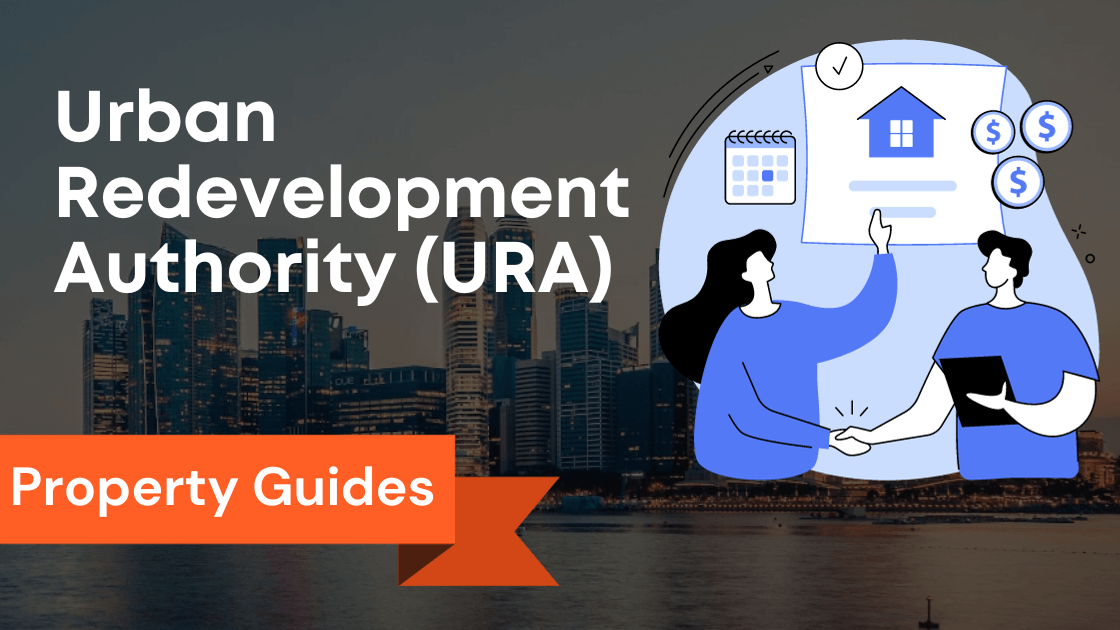
In the bustling real estate market of Singapore, property appraisals play a crucial role in determining the value of properties.
However, like any human-driven process, appraisal bias can sometimes seep into the evaluation process, potentially affecting the accuracy of property valuations.
Appraisal bias can have significant implications for property valuations in Singapore.
As the real estate industry evolves and strives for greater transparency and fairness, it is essential to address any biases that may influence the appraisal process.
By promoting diversity, providing comprehensive training, and continuously evaluating and refining appraisal practices, stakeholders can work towards achieving more accurate and equitable property valuations, benefiting property owners and fostering a fair and inclusive real estate market for all.
This article aims to provide an overview of appraisal bias in Singapore, shedding light on its causes and potential consequences.
Key Takeaways
- Definition of Appraisal Bias: Appraisal bias refers to systematic errors or prejudices in the appraisal process, leading to discriminatory outcomes in property valuation.
- Manifestations in Singapore: Appraisal bias in Singapore can manifest based on race, ethnicity, or national origin, impacting property valuations and hindering access to affordable housing for minority communities.
- Impact on Singaporeans: Bias in appraisals can perpetuate housing disparities, affecting homeownership rates, market dynamics, and overall well-being of communities of color.
- Government Initiatives: The Singapore government has established an interagency task force to address appraisal bias, aiming for transparency, consistency, and equality in property valuation.
- Examples of Bias: Instances include recency bias, algorithmic bias, and undervaluation of properties, affecting both buyers and sellers, with potential disproportionate impact on minority communities.
- Addressing Bias: Ongoing efforts involve appraisal reform, fair lending laws and training, enforcement actions, and collaborative initiatives between agencies to ensure fair treatment for homeowners.
- Challenges in the Appraisal Industry: The appraisal industry faces challenges, with appraisal bias being a significant concern that can impact fair housing laws and create inequalities in the market.
- Reducing Appraisal Bias Strategies: Strategies include implementing clear criteria for evaluation, comprehensive appraiser training, separating contract price from employee discipline, minimizing employee stress, and promoting fair lending training.
- Government’s Role in Bias Reduction: The Singapore government actively collaborates with agencies and international organizations to advance property appraisal practices, reduce bias, and promote fairness in valuations.
- Collective Responsibility: Reducing appraisal bias requires a collective effort from lenders, appraisers, and the government. Promoting fair lending practices, providing training, and implementing comprehensive strategies contribute to a more equitable appraisal process in Singapore.
Understanding Appraisal Bias in Singapore

What is Appraisal Bias?
Appraisal bias refers to the systematic errors or prejudices that can occur in the appraisal process, leading to unfair or discriminatory outcomes.
In the context of Singapore, appraisal bias can manifest in various ways, including bias based on race, ethnicity, or national origin.
Biased appraisals can result in lower valuations for properties owned by individuals from minority communities, impacting their ability to access affordable housing or obtain fair loans.
Appraisals are an essential component of the real estate industry, providing an objective assessment of a property’s value.
However, if appraisers possess unconscious biases or rely on flawed methodologies, it can lead to inaccurate valuations.
How Does Appraisal Bias Affect Singaporeans?
Appraisal bias can have a significant impact on Singaporeans, particularly those from communities of color.
Racial bias in the appraisal process can result in lower valuations for homes in neighborhoods predominantly occupied by people of color, perpetuating disparities in housing prices.
This can affect homeownership rates, housing market dynamics, and the overall well-being of families of color.
Such bias can also hinder efforts to promote fair housing laws and create inclusive communities.
When homes in certain areas are consistently undervalued, it can limit investment opportunities, infrastructure development, and access to resources for these neighborhoods.
Additionally, appraisal bias can influence lending practices and affordability.
Lower valuations of homes can lead to higher down payment requirements, making it more challenging for individuals from marginalized communities to secure loans or refinance existing mortgages.
This can further exacerbate existing wealth disparities and hinder intergenerational wealth accumulation.
Examples of Appraisal Bias in Singapore
Instances of appraisal bias in Singapore can take various forms.
For example, recency bias may occur when an appraiser relies too heavily on recent sales data without considering the long-term value of the property.
Algorithmic bias is another concern, as automated valuation models may unknowingly perpetuate biases present in historical data.
In some cases, common appraisal practices may fail to recognize the true value of a property.
Appraisals that come in lower than the contract price can have significant consequences for both buyers and sellers, leading to financial losses or failed transactions.
This can disproportionately impact minority communities that may already face systemic barriers in the housing market.
To address these concerns, the Singapore government has taken action.
The interagency task force on property has developed an action plan to advance property valuation practices and ensure fair treatment for all homeowners.
The goal is to tackle appraisal bias head-on and promote transparency, consistency, and equality throughout the appraisal industry.
Understanding appraisal bias in Singapore is crucial to combat discrimination in the appraisal process and promote fair access to housing for all.
Ongoing efforts to address biases, improve methodologies, and increase awareness are necessary to create a more equitable real estate industry.
Challenges in the Appraisal Industry
The appraisal industry plays a crucial role in determining property values and facilitating real estate transactions.
However, like any other industry, it faces challenges that can have significant implications.
One of the most pressing challenges is appraisal bias, which can affect fair housing laws and create inequalities in the market.
According to a 2021 study on performance data, it has been found that real estate agents have been assigning a lower value to homes of a particular race.
This alarming revelation highlights a deep-seated problem within the industry that needs to be urgently addressed.
It is unacceptable that in this day and age, racial biases still persist in such a crucial sector.
By assigning a lower value to a home solely because of the race of its owner, real estate agents perpetuate systemic inequalities and contribute to the widening wealth gap between different racial groups.
This discrimination not only affects the immediate financial well-being of individuals and families but also has long-term implications for their social mobility and economic opportunities.
It is imperative for the real estate industry to take immediate steps to address this issue by implementing stricter regulations and providing comprehensive diversity and anti-bias training to all agents.
Additionally, it is crucial for policymakers to work towards creating a more equitable housing market by enforcing anti-discrimination laws and ensuring greater transparency and accountability in the appraisal process.
Every individual, regardless of their race, deserves fair and equal treatment when it comes to purchasing or selling a home.
It is high time that the real estate industry takes the necessary measures to eliminate racial disparities and create a more inclusive and just housing market for all.
In half a dozen states, homes in predominantly black neighborhoods have faced a long-standing challenge when it comes to obtaining fair and affordable mortgage loans.
Mortgage lenders, whose responsibility is to provide financial support to aspiring homeowners, have been found systematically discriminating against black borrowers, leading to racial disparities in home ownership rates.
This injustice has persisted despite the presence of institutions like Fannie Mae and Freddie Mac, which were established to ensure equal access to housing for all Americans.
Fannie Mae and Freddie Mac, two of the most common mortgage purchasers in the United States, have failed to effectively address the discrimination prevalent in the mortgage lending industry.
Instead, they have turned a blind eye to the unfair practices, perpetuating a cycle of inequality and restricted opportunities for black communities.
While progress toward equal opportunity and fair treatment in housing has been made over the years, much work remains to be done to dismantle the barriers that hinder home buying for black Americans.
It is crucial that we hold mortgage lenders accountable for their discriminatory practices and that institutions like Fannie Mae and Freddie Mac strive to fulfill their intended purpose of ensuring equal housing opportunities for all, regardless of race or ethnicity.
How Does Appraisal Bias Impact Fair Housing Laws in Singapore?
Appraisal bias refers to the systematic favoritism or discrimination in the appraisal process.
It occurs when an appraiser’s personal biases, conscious or unconscious, influence the valuation of a property.
In the context of fair housing laws in Singapore, appraisal bias can lead to discriminatory appraisals that perpetuate inequalities in housing.
Discriminatory appraisals can occur when houses in certain neighborhoods, particularly those predominantly occupied by marginalized communities, are undervalued compared to similar properties in other areas.
This undervaluation has far-reaching consequences, as it can limit access to credit and affordable housing for certain groups of people, exacerbating existing disparities.
To address this issue, efforts are being made to promote fair housing training and awareness among appraisers in Singapore.
Such training can help appraisers recognize and mitigate their biases, ensuring a more objective and fair valuation process.
Additionally, fair housing laws and regulations should be strictly enforced to hold appraisers accountable for any discriminatory practices.
What Can Be Done to Reduce Appraisal Bias in Singapore?
Reducing appraisal bias requires a comprehensive action plan involving various stakeholders in the appraisal industry.
This includes federal agencies, lending institutions, appraisers, and policymakers.
Some potential actions to tackle appraisal bias in Singapore include:
- Appraisal Reform: Continual evaluation and improvement of the appraisal process to identify and eliminate bias. This may involve implementing standardized valuation methods and utilizing technology solutions that minimize human bias.
- Fair Lending Laws and Training: Strengthening fair lending laws and regulations to specifically address appraisal bias. Lenders should provide fair lending training to appraisers, ensuring they are aware of the potential biases and can make objective evaluations.
- Enforcement Actions: Strict enforcement of existing laws and regulations to discourage and penalize discriminatory appraisal practices. This can include conducting audits on appraisal reports and taking disciplinary actions against appraisers found guilty of bias.
Singapore Government Initiatives to Address Appraisal Bias
The Singapore government recognizes the importance of addressing appraisal bias and promoting fair housing.
The Biden-Harris Administration has released an action plan to advance property appraisal and valuation equity.
This plan includes measures to address biases and improve property valuation, particularly in homes located in black neighborhoods.
To ensure the implementation of these initiatives, the Appraiser Qualifications Board and other relevant agencies will work closely together.
A joint statement by various organizations emphasizes the commitment to fair and equitable appraisals, taking into account structural and neighborhood characteristics to ensure accurate valuations.
By taking these steps, Singapore aims to create a more equitable housing market by eliminating bias in the appraisal process and promoting fairness in property valuation.
This will help ensure equal opportunities for all individuals and communities, regardless of their backgrounds.
In conclusion, tackling appraisal bias is crucial to uphold fair housing laws and create a more inclusive real estate market in Singapore.
By addressing bias in the appraisal process, implementing reform measures, and promoting fair training, Singapore can work towards a more equitable valuation system for all.
Overcoming Appraisal Bias | Appraiser Fair Housing | Appraisal Discrimination

Experienced appraisals are a crucial aspect of the real estate market.
A real estate appraiser’s role is to conduct a thorough evaluation and analysis of a property to determine its market value.
However, it is worth noting that the majority of appraisers in the United States are white, leading to concerns about potential bias in their appraisals.
The appraiser’s job is to impartially assess the subject property based on a range of factors, including its location, size, condition, and features.
One key element in their analysis is the comparison of the subject property to recent comparable sales in the area.
By examining these similar properties, appraisers can gauge the value of the subject property more accurately.
The appraisal valuation is a critical component in real estate transactions, as it helps parties involved, such as lenders and buyers, determine a fair price.
These valuations not only impact the overall market but also influence financial decisions and investments.
It is crucial for appraisers to approach their work with diligence, professionalism, and impartiality to ensure that their assessments reflect the true market value of the property, regardless of the race or background of the individuals involved.
This ensures a fair and transparent real estate market that benefits all parties.
When it comes to appraising real estate, one of the biggest concerns is the potential for appraiser bias.
Appraiser Bias are human, and it is well known that human judgment can be influenced by various factors.
Bias can occur in many forms, from implicit bias based on personal beliefs and attitudes to explicit bias based on external influences.
This can greatly impact the accuracy and fairness of the appraisal process.
One common issue that arises is when an appraisal comes in lower than expected.
This can be frustrating for homeowners and sellers who were anticipating a higher value for their property.
In some cases, this lower appraisal can be attributed to bias on the part of the appraiser.
They may have a preconceived notion or personal opinion about the property or the neighborhood which influences their assessment.
It is important for both appraisers and those involved in the real estate industry to acknowledge the existence of bias and work towards minimizing its effects.
This can be done through awareness and training, ensuring that appraisers are knowledgeable about the factors that can influence their judgment and how to mitigate bias.
Additionally, utilizing a central tendency approach, where multiple appraisals are taken into consideration, can help to balance out any potential bias and provide a more accurate assessment of a property’s value.
Ultimately, possible bias, appraisal comes in lower, real estate and build, central tendency, past performance, and overall performance it is critical to evaluate an appraiser’s past performance and ensure that their overall performance meets the highest standards of accuracy and fairness.
How to Reduce Performance Appraisal Bias
Appraisal bias refers to the tendency of appraisers to be influenced by personal beliefs, stereotypes, or prejudices when evaluating an individual or property.
In the context of performance appraisals, bias can lead to unfair evaluations that affect career advancement and employee morale.
In the appraisal industry, bias can result in discriminatory practices that impact fair housing and lending.
To ensure a fair and impartial appraisal process, organizations can take the following steps to reduce performance appraisal bias:
- Implement an action plan: Establish clear and objective criteria for performance evaluation. This includes defining key performance indicators, providing detailed guidelines for rating scales, and conducting regular calibration sessions to ensure consistency among appraiser.
- Recognize potential bias: Appraisers should undergo comprehensive training to understand the different types of biases that can influence their decision-making. By raising awareness, appraisers are more likely to recognize and mitigate bias while evaluating performance.
- Separate contract price from employee discipline: In the home appraisal process, it is crucial to separate the contract price from the evaluation of an employee’s performance. Appraisers should focus solely on the objective market value of the property, rather than being influenced by the buyer’s identity or any personal factors.
- Minimize employee stress: High-stress levels can negatively impact employee performance and lead to biased evaluations. To reduce appraisal bias, organizations should create a supportive work environment that promotes open communication, provides resources for stress management, and encourages work-life balance.
- Provide fair lending training: In the lending industry, appraisal bias can manifest as discrimination against certain individuals or communities. Lenders should invest in fair lending training to educate their staff on the importance of unbiased appraisals are white and fair lending practices. This includes providing guidelines for avoiding bias and establishing clear procedures for handling complaints related to appraisal discrimination.
By implementing these strategies, organizations can foster a more equitable and unbiased appraisal process.
It is essential to continuously monitor and evaluate the effectiveness of these efforts to ensure ongoing improvement and fair treatment for all individuals involved.
Recognizing and overcoming appraisal bias is crucial for fair performance evaluations and unbiased property appraisals.
By implementing clear guidelines, providing training, and promoting a supportive work environment, organizations can reduce the negative impact of bias and foster a more equitable appraisal industry.
Ensuring Fairness in Performance Appraisal Process | Home Appraisal | Bias in the Appraisal Process

How Does Appraisal Bias Occur in the Home Appraisal Process?
In the world of appraisal, bias can manifest in various ways, particularly in the home appraisal process.
One common form of bias is discrimination, where appraisers may unknowingly or knowingly assign different values based on factors such as race, ethnicity, or neighborhood.
This can result in appraisal reports that undervalue homes in certain communities, leading to unfair treatment and perpetuating housing disparities.
Another source of bias is the subjective nature of the appraisal process itself.
Appraisers rely on their professional judgment when determining the value of a property, but their personal opinions and biases can influence their assessments.
This subjectivity can be problematic, as it leaves room for unconscious bias to seep into the appraisal reports.
To address this issue, there have been calls for more standardized and less-subjective home appraisals, focusing on objective factors like property size, condition, and location.
To combat bias in the appraisal industry, efforts are being made to improve data quality and accuracy.
Appraisers are encouraged to gather comprehensive and up-to-date information about the properties they evaluate, utilizing reliable sources and employing robust methodologies.
Additionally, there is a growing push for the establishment of appraisal bias task forces that will examine industry practices and develop guidelines to ensure fair and unbiased appraisals.
How to Identify Appraisal Bias in the Home Appraisal Process
Identifying appraisal bias can be challenging, as it often requires a careful analysis of the available data and a comparison against established standards.
However, there are some indicators that can help raise suspicions of bias.
If you find significant discrepancies between the initial appraisal and the market value of similar properties, it may be worth investigating further.
In cases where the appraisal seems unusually low or inconsistent with market trends, it is essential to consider the possibility of bias.
To ensure accurate and fair appraisals, independent agencies can be engaged to review and audit appraisal reports.
These agencies can provide an unbiased assessment of the valuation process, identify potential biases, and recommend corrective actions.
In situations where appraisal bias is suspected, individuals can also file complaints with regulatory bodies and seek legal advice.
What to Do if You Suspect Appraisal Bias
If you suspect appraisal bias, it is crucial to take appropriate action to address the issue.
Consider seeking additional appraisals from reputable and independent appraisers to compare results.
This can help identify any inconsistencies or biases in the initial appraisal.
It is also advisable to request written explanations from the original appraiser, outlining the methodology and factors considered in the valuation.
In some cases, adverse action notices may need to be issued to lenders or agencies involved to address the potential consequences of biased appraisals.
To combat appraisal bias on a broader scale, advocating for policy changes and reforms within the appraisal industry is crucial.
This can involve collaborating with organizations and professionals to establish best practices and guidelines that promote fair and unbiased appraisals.
Additionally, increasing awareness of appraisal discrimination and supporting initiatives that address algorithmic bias in the appraisal process can contribute to fairer and more equitable home valuations.
By actively addressing appraisal bias and working towards fair and unbiased appraisals, we can strive towards a more just and equal housing market.
Reducing Appraisal Bias in Singapore | Lender

Appraisal bias can have a significant impact on individuals and communities, particularly in the real estate industry.
In Singapore, efforts are underway to address this issue and create a fair and unbiased appraisal process.
By understanding the role of different stakeholders, such as lenders, appraisers, and the government, we can work towards reducing appraisal bias and ensure a more equitable system.
The Role of Lenders in Reducing Appraisal Bias
Lenders play a crucial role in reducing appraisal bias by adhering to fair lending laws and promoting fair practices within their organizations.
They can ensure that their lending staff receives fair lending training, which includes education on appraisal bias and its impact on fair housing.
By having a better understanding of the appraisal process and potential biases, lenders can make informed decisions and contribute to a more objective valuation.
Additionally, lenders can actively engage with the appraisal foundation and appraisal standards organizations to advocate for fair and unbiased practices within the industry.
The Role of Appraisers in Reducing Appraisal Bias
Appraisers also have a responsibility to address and reduce appraisal bias.
Appraisal organizations can establish task forces to examine appraisal bias and develop guidelines and training programs to combat it.
These organizations, such as the Appraiser Qualifications Board, can ensure that appraisers receive comprehensive training on fair appraisal practices, including identifying and addressing bias.
By implementing these initiatives, appraisers can ensure a more objective appraisal process and contribute to a fairer valuation of properties.
The Role of the Singapore Government in Reducing Appraisal Bias
The Singapore government is actively involved in reducing appraisal bias through the establishment of an interagency task force.
This task force works to advance property appraisal practices and address any bias that may exist in the valuation process.
The government has also collaborated with international organizations, such as the Biden-Harris Administration, to share best practices and strategies for reducing bias in appraisals.
In addition, the government has released an action plan that outlines specific measures to address appraisal bias and promote fairness in property valuations.
In conclusion, reducing appraisal bias requires a collective effort from lenders, appraisers, and the government.
By promoting fair lending practices, providing training and education on appraisal bias, and implementing comprehensive strategies, we can work towards a more equitable and unbiased appraisal process in Singapore.
Conclusion
Comparing Different Approaches to Appraisal Bias
Appraisal bias in the real estate industry is a pressing issue that needs to be addressed.
The experiences of 2021 have shed light on the various factors that contribute to bias in the appraisal process, including the halo effect, lack of diversity among appraisers, and limited access to appraisal data.
It is crucial to recognize that bias can lead to under-appraisal of properties in minority communities, hindering their ability to build wealth through real estate.
One approach to addressing appraisal bias is through increased diversity among appraisers.
By ensuring a more diverse pool of appraisers, including individuals from different racial and ethnic backgrounds, there is a higher chance of fair and unbiased appraisals.
Additionally, providing education and training on bias awareness and fair valuation practices can help mitigate bias in the appraisal process.
Another approach is to enhance the transparency and accessibility of appraisal data.
By making appraisal data more readily available to homeowners and buyers, there is greater transparency in the valuation process.
This can help reduce the potential for bias and provide a more accurate representation of property values.
Strategies for Overcoming Appraisal Bias
To overcome appraisal bias, it is important for stakeholders in the real estate industry to take proactive measures. Here are some strategies that can be implemented:
- Implement a performance management system: Establishing a performance management system that evaluates appraisers based on their accuracy and fairness can help identify and address any potential bias during the process.
- Encourage diversity among appraisers: Actively recruit and train appraisers from diverse backgrounds to ensure a more balanced and unbiased representation in the industry.
- Promote the use of multiple appraisal approaches: Encouraging the use of multiple appraisal approaches, such as the sales comparison approach, income approach, and cost approach, can provide a more comprehensive and accurate valuation of real estate.
- Advocate for stricter enforcement of the Fair Housing Act: The Fair Housing Act prohibits discrimination in housing based on race, color, religion, sex, handicap, familial status, or national origin. Advocating for stricter enforcement of this act can help reduce bias in the appraisal process.
In conclusion, addressing appraisal bias in Singapore requires a multi-faceted approach that includes increasing diversity among appraisers, improving transparency in appraisal data, and implementing strategies to overcome bias.
By taking these steps, stakeholders in the real estate industry can work towards achieving fair and unbiased appraisals, ensuring equal opportunities for all individuals and communities to build wealth through real estate.












